Mugabe's long career in pictures
- Published
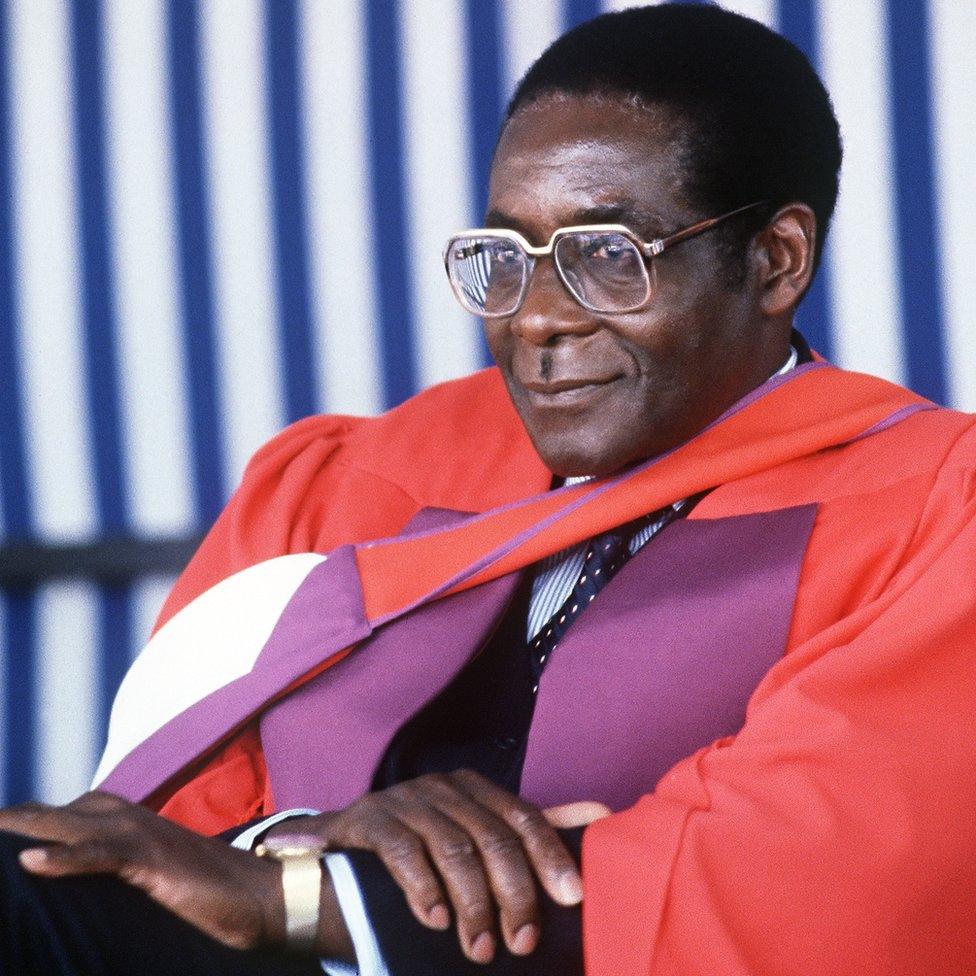
Robert Gabriel Mugabe was educated at a mission school and went on to train as teacher, graduating from Fort Hare university where Nelson Mandela studied. In 1958, he went to work in Ghana
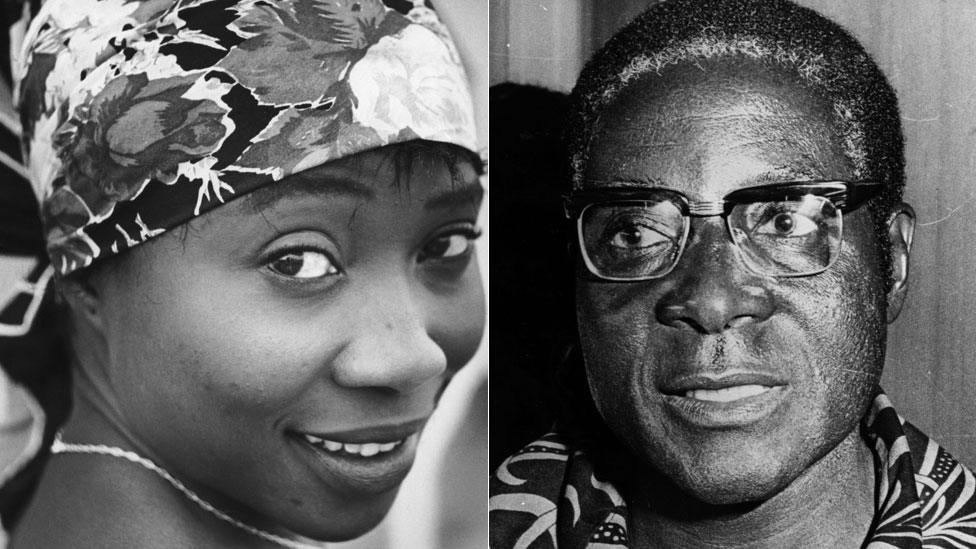
There he met Sally Hafron whom he married in 1961. She was actually more political than him before he was recruited by black nationalists. He was later imprisoned by the Rhodesian government, but was not allowed to attend the funeral of his son
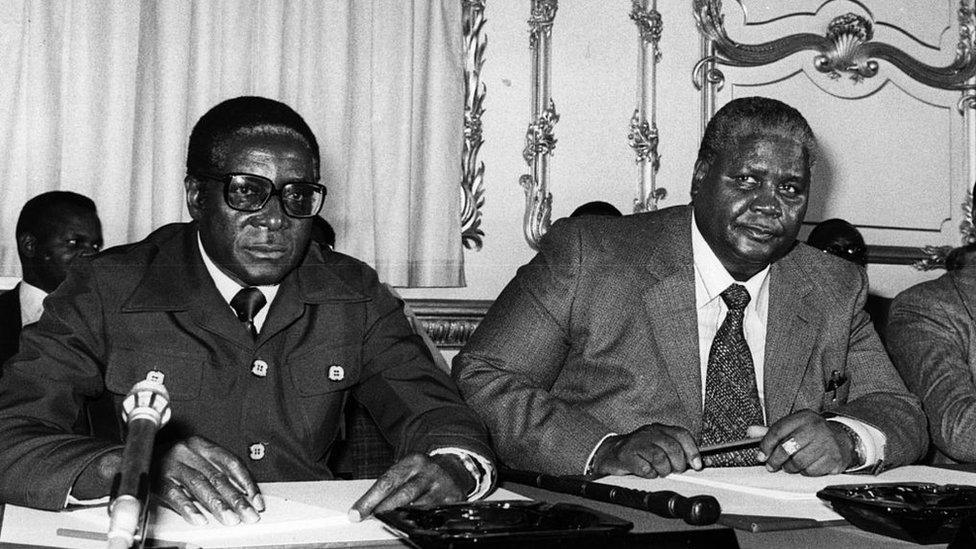
After his release from jail in 1974, he came to prominence as one of the leaders of a guerrilla war against white-minority rule, along with Joshua Nkomo (left)
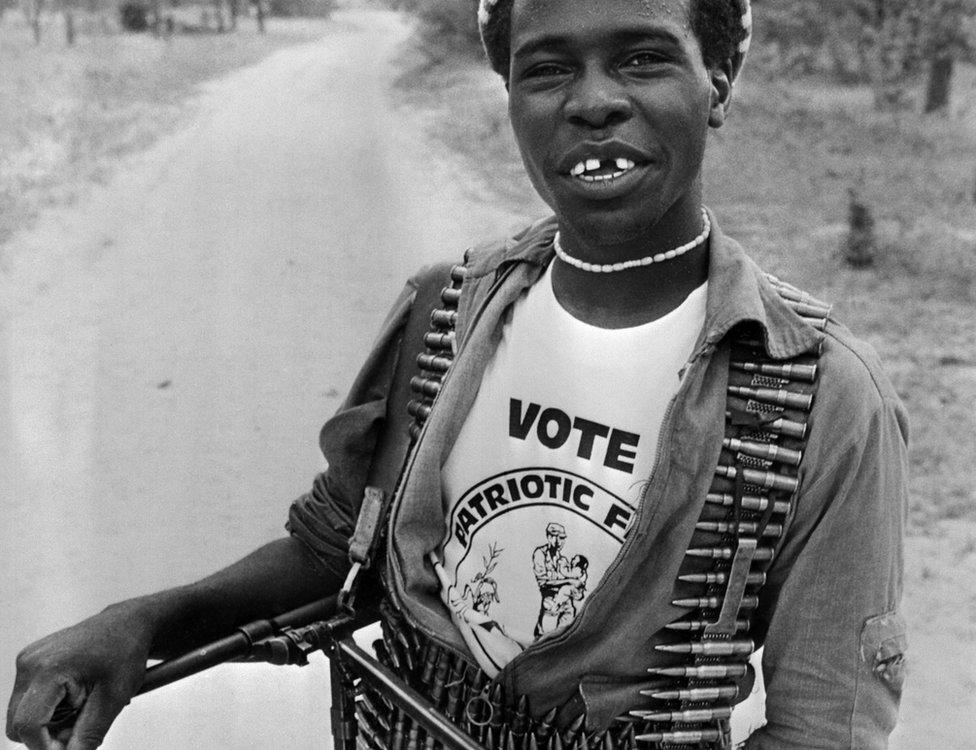
They agreed to disarm at peace talks hosted by the British. They formed the patriotic front - and to the surprise of Western observers won elections held in February 1980 by a landslide
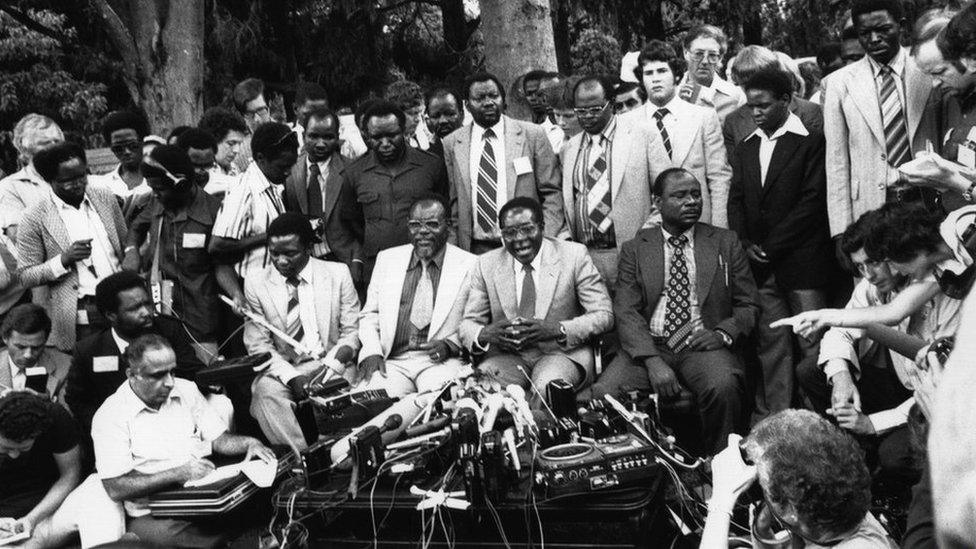
Robert Mugabe had arrived in the country only six weeks before the election, after spending 10 years in exile. He became prime minister, forming an inclusive government
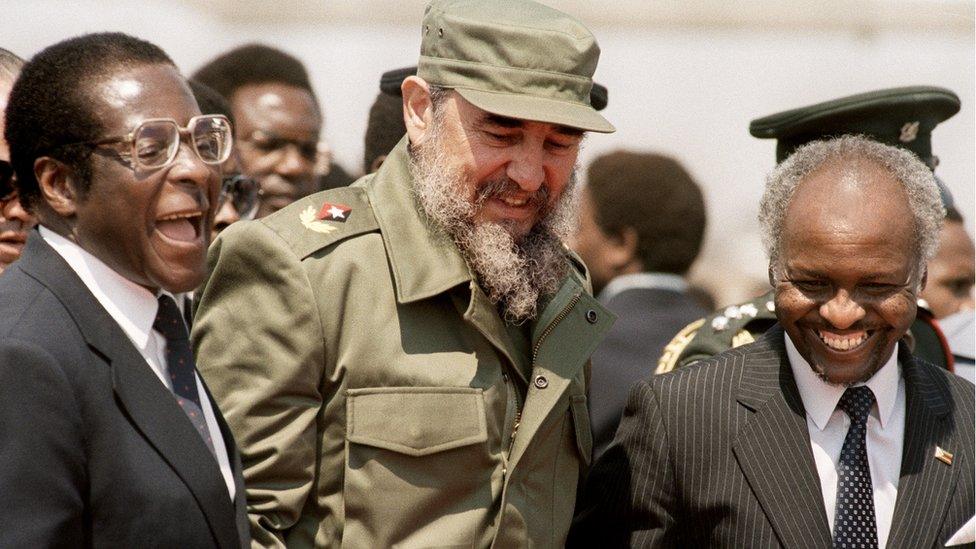
During his first years in office, he was feted by leaders across the world, including Cuba's Fidel Castro, who visited the country in 1986
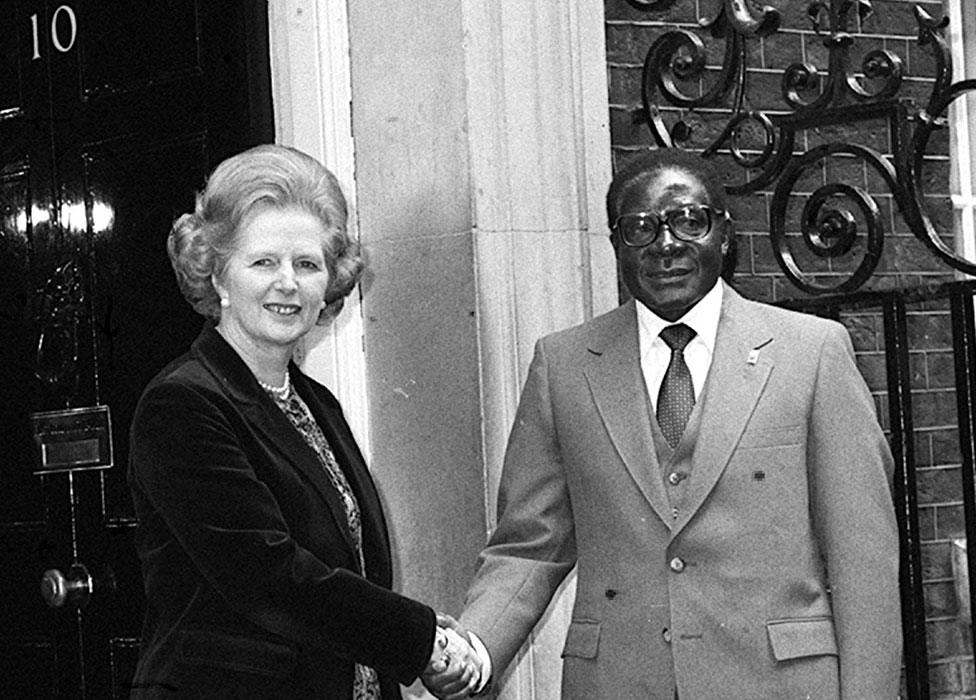
He also had a close relationship with UK Prime Minister Margaret Thatcher - and initially pursued a policy of reconciliation with his white former enemies, letting them keep their economic wealth
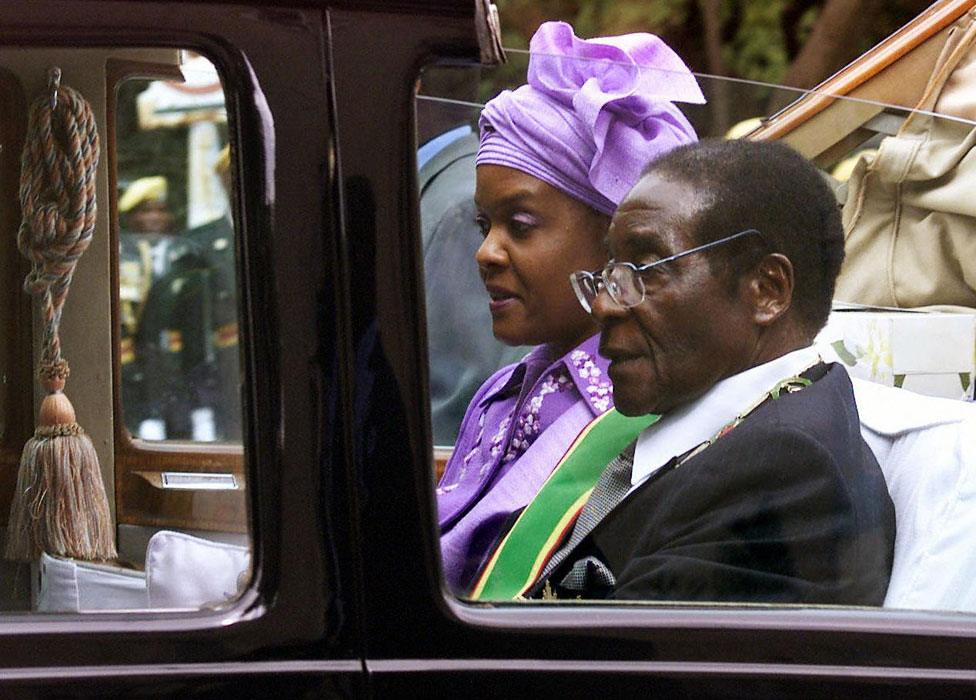
He married his typist Grace Marufu, with whom he already had two children, in 1996 a few years after his first wife died. The 1990s also saw the country's intervention in the war in the Democratic Republic of Congo, which proved costly to the economy
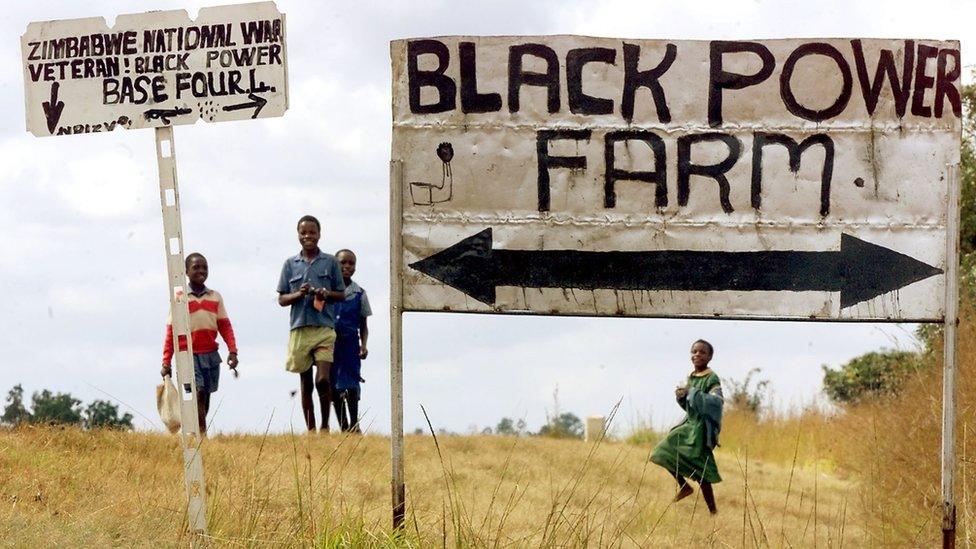
When Tony Blair's UK government pulled out of talks to fund controversial land reforms in 1997 and after Mr Mugabe lost a referendum on a new constitution three years later, pro-Mugabe militias began to invade white-owned farms
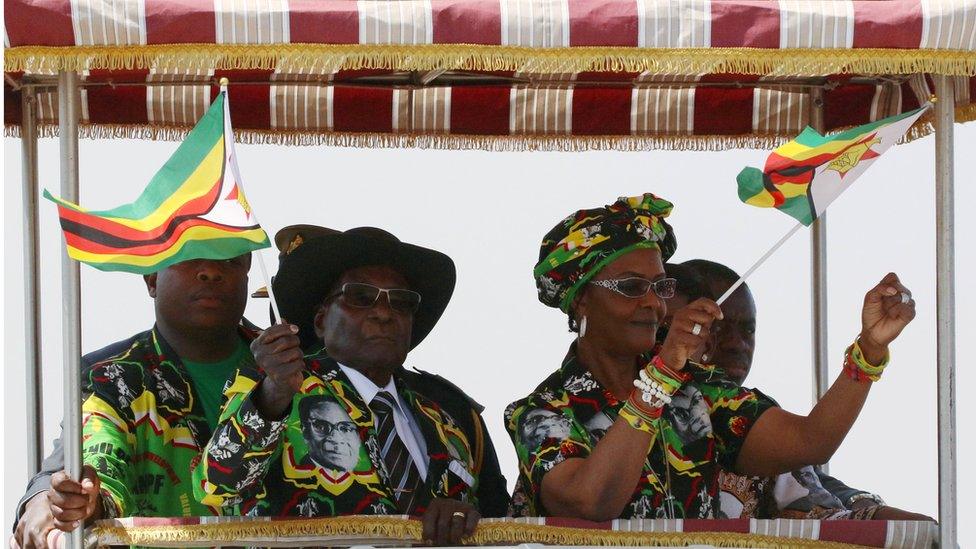
It was around this time that Mr Mugabe abandoned his Savile Row and safari suits in favour of brightly coloured attire emblazoned with his face when he was on the campaign trail
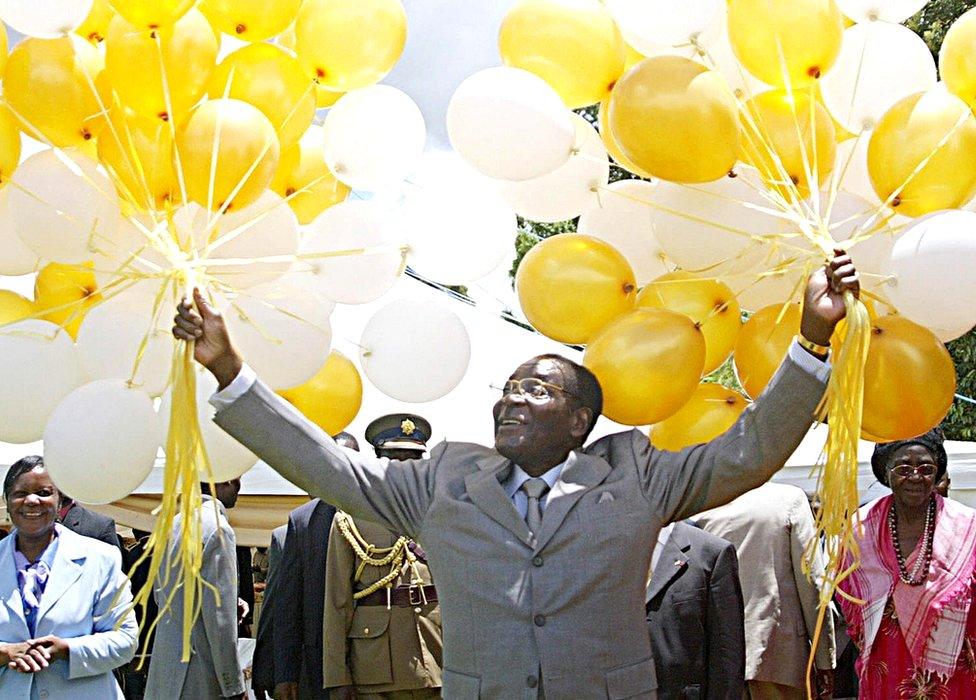
It became a cult of personality, and big celebrations were organised by the ruling Zanu-PF party each year to mark his birthday...
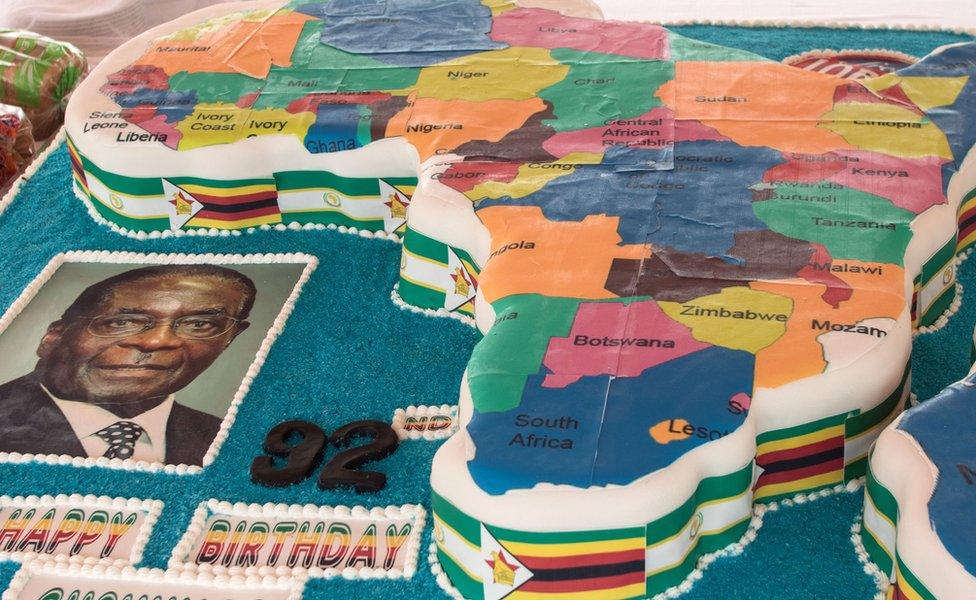
These included extravagant cakes. This one reflects how many Africans regarded him as a hero, admiring his stand against white farmers
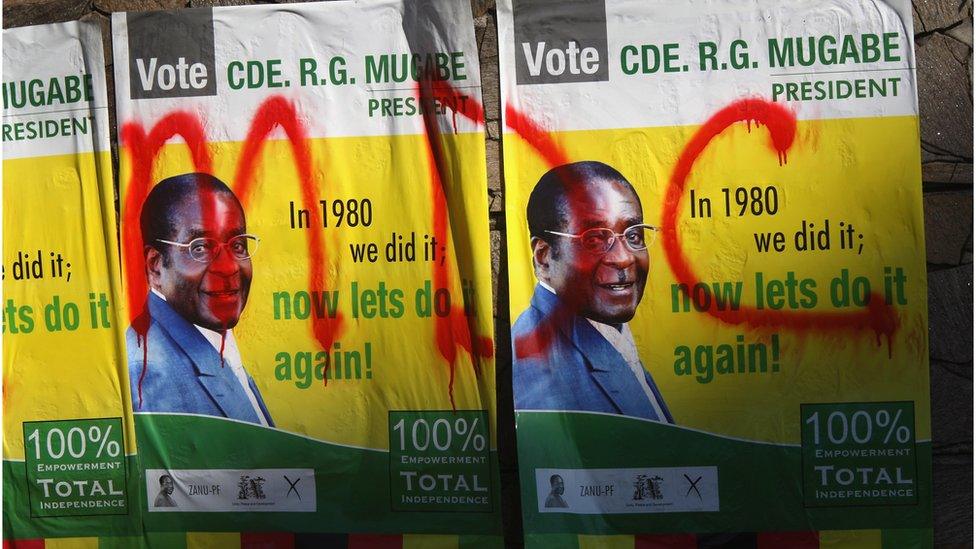
However, his popularity, especially in urban areas, steadily declined at home - and he lost the first round of the presidential election in 2008, winning the run-off after the opposition MDC withdrew, citing violence
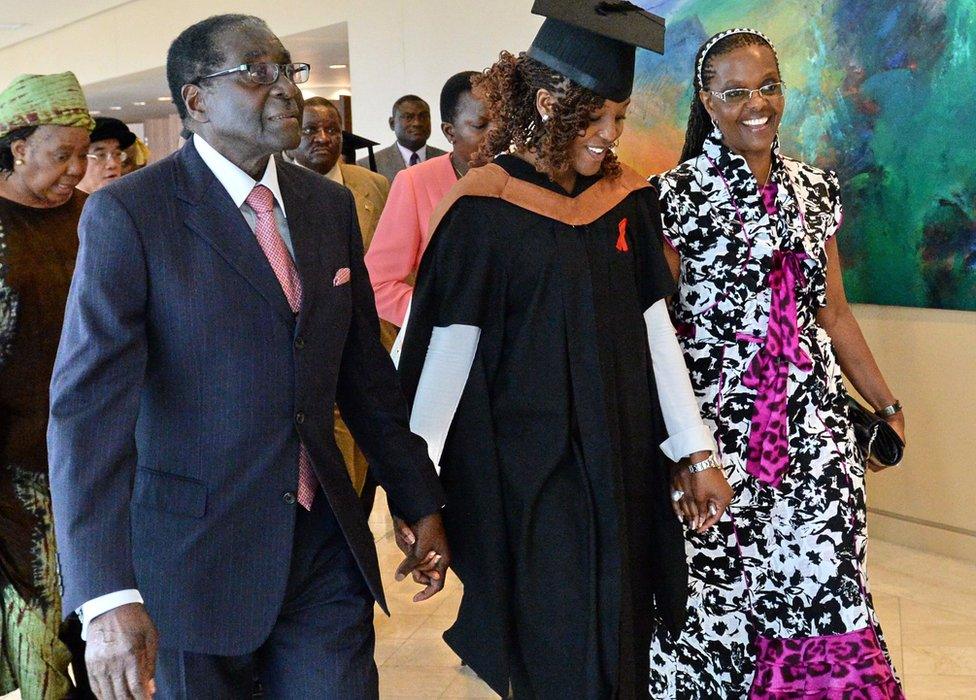
Sanctions imposed by the US and EU prompted Mr Mugabe's "Look East" policy, turning to China for investment. He used to travel to Asia for medical treatment - his daughter Bona (C) studied in Hong Kong and Singapore
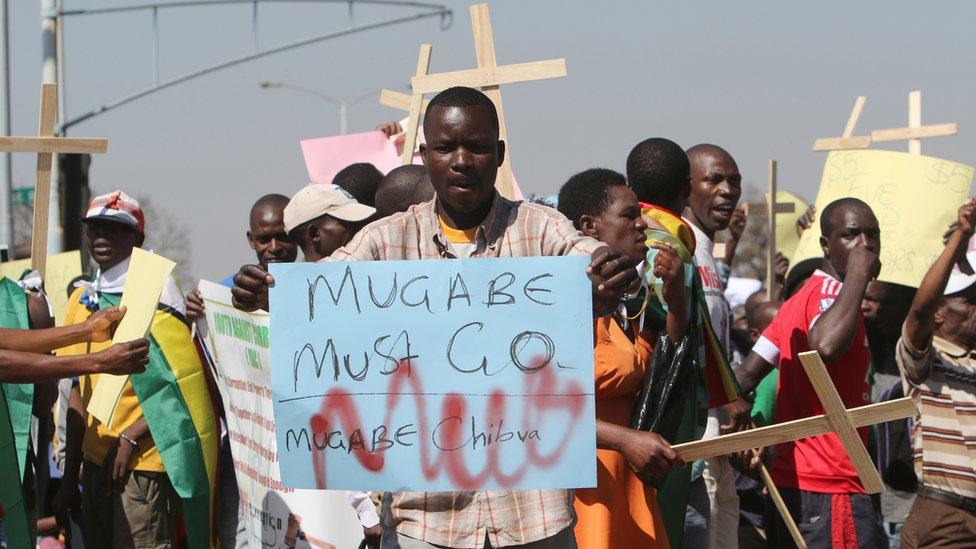
His Zanu-PF party won elections in 2013, after four years of a power-sharing government, on a platform of indigenisation - a policy of ceding economic control to black Zimbabweans. Crippling cash shortages led to protests in 2016
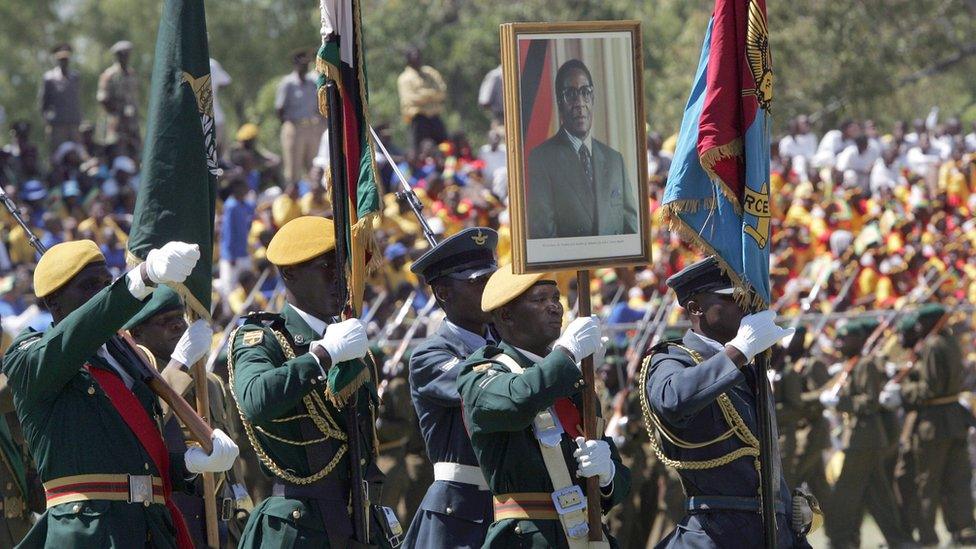
However, the security forces always stood by Mr Mugabe - until his wife's ambition for power proved too much for them to stomach and they launched a takeover on 15 November 2017
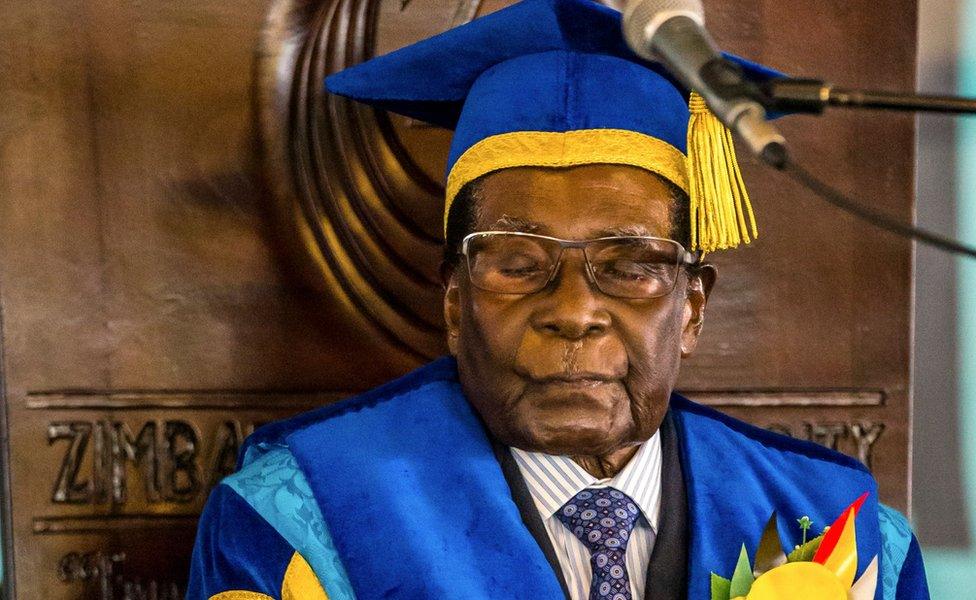
They were anxious that it not look like a coup, and Mr Mugabe carried on with some of his duties - though his age showed as he appeared to doze during a graduation ceremony
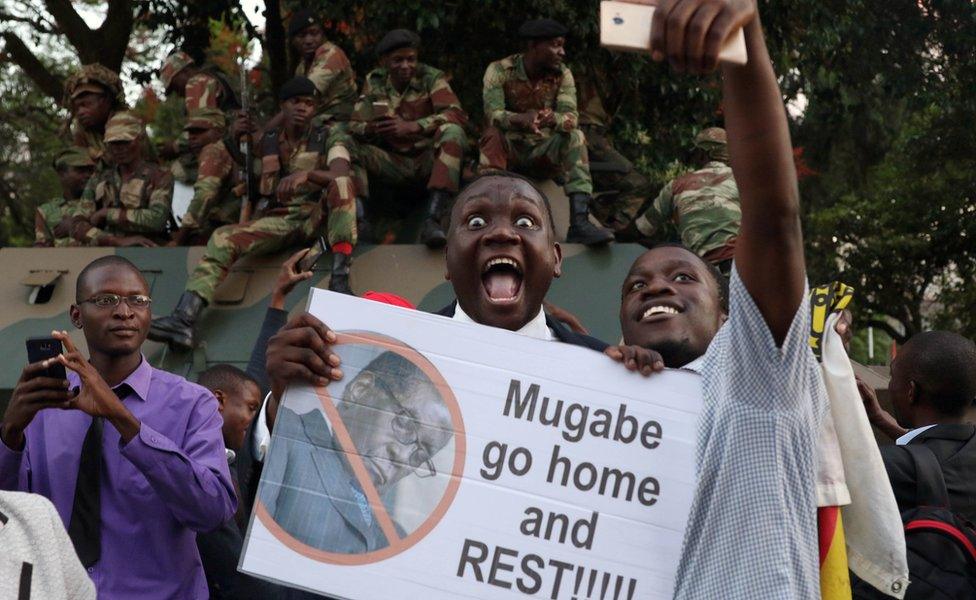
But after a mass demonstration and amid impeachment proceedings, the 93-year-old leader bowed to pressure. He resigned after 37 years in power - prompting wild celebrations.
All pictures copyright